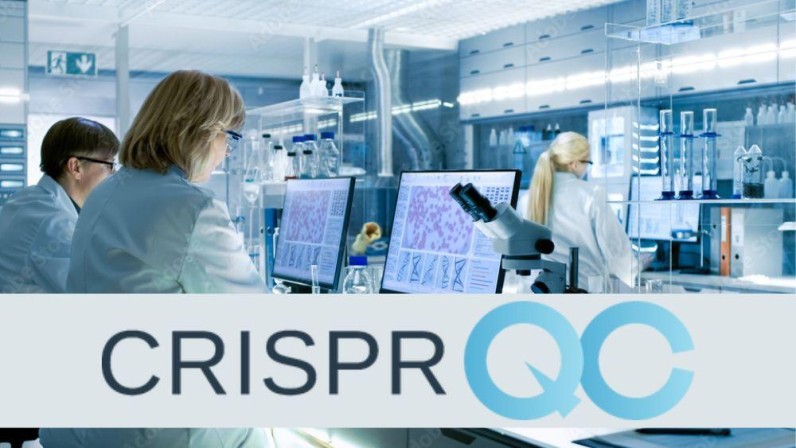
According to today's medical landscape, gene editing is largely uncharted. With an estimated worth of $5.3 billion, the industry holds a great deal of promise for advancing healthcare and improving patient outcomes. In the field of CRISPR-based gene editing, significant challenges persist due to the lack of standardized methods and regulations, creating what some experts refer to as a proverbial scientific "Wild West."
"In essence, the concept of gene editing has been around for a while, but it's challenging. There are still precision issues, there are still control issues," says Ross Bundy, co-founder and chief executive officer of CRISPR QC. His team is taking a bold step to modernize the field with new quality control standards, consistency, and reliability.
For several decades, the gene editing sector has been marked by rapid advancements and experimental treatments. Researchers began exploring the possibilities of modifying genes to treat various genetic diseases. However, due to unstandardized processes, these early iterations of gene editing led to inconsistent results and safety concerns.
Today's pioneers in the space are still grappling with these issues. Companies and their researchers are navigating uncharted territory with minimal oversight. According to Bundy, this is where CRISPR QC is working to install an essential framework.
Gene editing is the process of modifying an organism's DNA. CRISPR QC's analytics platform, powered by a proprietary CRISPR-Chip and deep machine learning, offers a newfound precision and real-time insight into the gene editing process. The technology measures how any formulation of CRISPR will operate on any target DNA, mimicking aspects of the cells that might be experienced in the editing process. Users can optimize gene editing with speed and precision, which translates to a new standard for safety and reliability.
The science can be applied to numerous use cases, from plants and animals. Gene editing has the potential to revolutionize healthcare by addressing life-threatening conditions like cystic fibrosis, sickle cell anemia, and muscular dystrophy. CRISPR QC's technology ensures that these therapies are more precise, minimizing the risk of unintended side effects.
But the potential of gene editing is still overshadowed by past industry scandals. When Chinese doctor He Jiankui introduced the world's first "genetically modified" embryos in 2018, the healthcare community was taken aback. Leaders in the space labeled the first-of-its-kind work "unethical" as He immunized the twin girls against the human immunodeficiency virus (HIV). He was later sentenced to three years in jail but has since been released and has started a new wave of experimental work that is highly concerning for industry professionals like Bundy.
"In editing a woman's embryos, are you creating something that will persist through generations? What's your data on that?" Bundy mused. "There are some frightening factors to this which make having that precise control necessary to give people confidence that this technology is real."
Another crucial notion is the difference between past gene therapies and current gene editing practices. Says Bundy, "The FDA is very reticent to make a mistake like they have in the past. There's a need for a deeper understanding of what will happen in any gene-altering process." Failed clinical trials using gene therapy do little to inspire public confidence but also put regulating bodies like the U.S. Food and Drug Administration (FDA) on high alert regarding gene therapies and gene editing.
Gene therapy involves inserting or altering genes in a patient's cells to treat or prevent disease. However, even current iterations of the treatment call for concern call as companies like Intellia have come under speculation with the FDA. Meanwhile, gene editing modifies existing genes within a patient's DNA. This distinction is crucial in understanding the current landscape and CRISPR QC's mission. Bundy co-founded CRISPR QC along with Dr. Kiana Aran in 2022.
The company leverages an extensive database and AI-driven algorithms to provide scientists with actionable insights. But the technology also incorporates unique data points, says Bundy, to quantitatively measure the editing activity of any CRISPR design on any target DNA. The data-powered approach offers greater precision and quality control to today's standard CRISPR editing. Therapeutic interventions are more precise and minimize the risk of off-target effects.
The CRISPR QC team recently partnered with the government agency National Institute of Standards and Technology (NIST) to work towards establishing much-needed industry standards. This partnership represents a pivotal moment in the field of gene editing, bringing the potential of greater precision and safety for scientists, providers, and, ultimately, patients.
"The science is extraordinarily overwhelming and deeply technical. But standardizing it helps us reach its full potential," says Bundy. "This is also how we build trust and faith in a largely unregulated area of science."
Advocating for gene editing quality control, industry standards, and affordable access could not have come at a more critical time. According to Bundy, before the broader medical community and the general population can benefit from gene editing as a form of treatment, they have to trust this wild medical frontier first. Learn more about CRISPR QC's approach to safe, accurate gene editing methodologies at crisprqc.com.







Join the Conversation